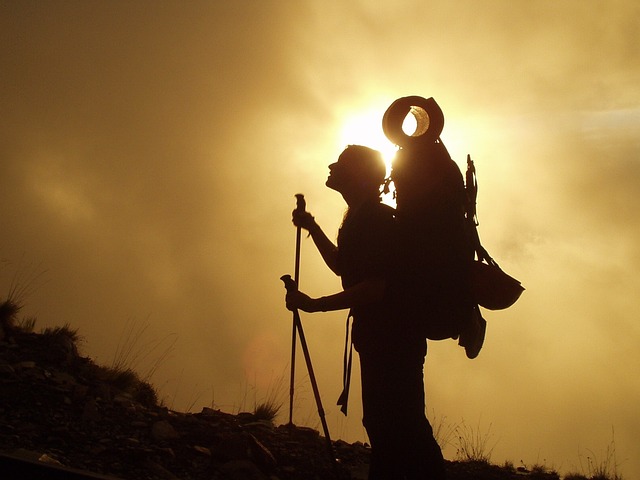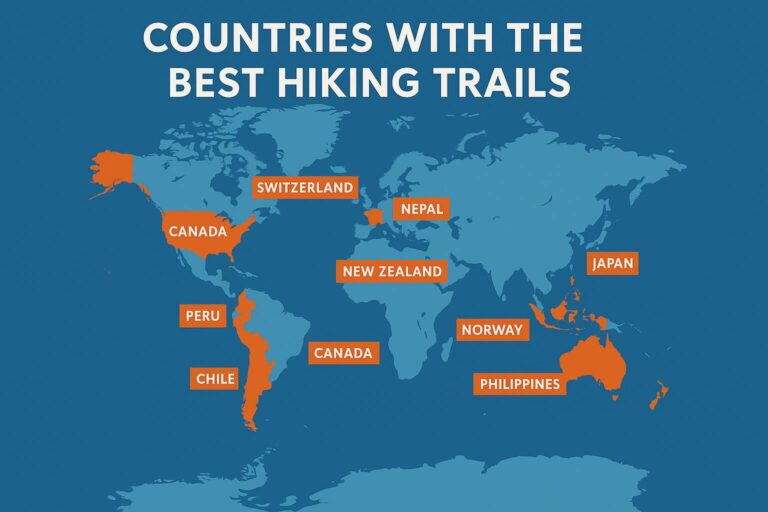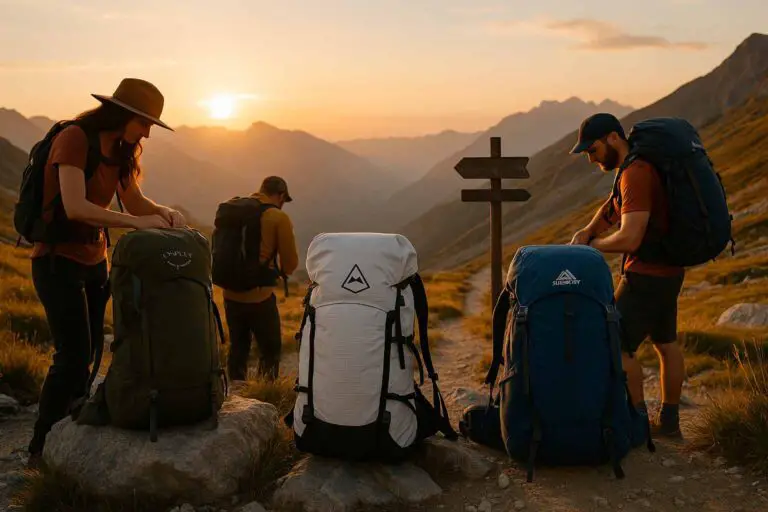Backpacking is a popular outdoor activity that involves carrying a backpack and hiking or camping in remote and often rugged terrain. While it can be a thrilling and rewarding experience, it is not without its dangers. To stay safe while backpacking, it’s important to be aware of the potential hazards and take appropriate precautions.
The physical demands of backpacking can pose a risk of injury or illness, and backpackers can also have a significant impact on the environment if not careful. In addition, emergencies can arise unexpectedly while backpacking, so it is important to be prepared with the necessary equipment and knowledge to handle them.
In this blog post, I will explore the various dangers of backpacking and provide practical tips on how to stay safe in the great outdoors. Whether you’re a seasoned backpacker or just starting out, this article will provide valuable insights on how to minimize risks and enjoy your adventure to the fullest. Let’s dive in!
Physical dangers
Backpacking can be physically demanding, and many potential hazards can cause injury or illness. Here are some of the most common physical dangers of backpacking and tips for staying safe:
- Physical fitness and endurance: Before embarking on a backpacking trip, it’s important to make sure you are physically prepared for the challenge. This means building up your endurance and strength through regular exercises, such as hiking or running. It’s also a good idea to practice carrying a heavy backpack for extended periods before your trip.
- Inclement weather: Weather can be unpredictable in the great outdoors, and sudden storms or extreme temperatures can pose a serious risk. Always check the forecast before your trip and pack appropriate gear, such as rain gear or extra layers, to stay warm and dry. In the event of a thunderstorm, seek shelter in a low-lying area away from trees or other tall objects.
- Difficult terrain: Backpacking often involves hiking through rugged and uneven terrain, which can lead to slips, trips, and falls. Always watch your step and use trekking poles or other aids to maintain your balance. If you’re hiking in a group, stay close together and keep an eye out for each other.
- Wildlife encounters: While wildlife encounters can be exciting, they can also be dangerous. Research the wildlife in the area you’ll be hiking in, and learn how to safely coexist with them. Never approach or feed wild animals, and store your food securely to avoid attracting them to your campsite.
By being aware of these physical dangers and taking the necessary precautions, you can minimize your risk of injury or illness while backpacking.
Environmental dangers
In addition to physical dangers, backpacking can also pose a risk to the environment. Here are some of the most common environmental dangers of backpacking and tips for minimizing your impact:
- Human impact: Backpackers can have a significant impact on the natural environment, especially in popular hiking areas. Be sure to follow Leave No Trace principles, which include packing out all of your trash, avoiding disturbing wildlife or vegetation, and sticking to designated trails.
- Fire hazards: Campfires are a common part of the backpacking experience, but they can also pose a serious fire hazard. Always check for fire restrictions before your trip, and only build fires in designated areas. Keep your campfire small and under control, and never leave it unattended.
- Water pollution: Backpackers often rely on natural water sources for drinking and cooking, but these sources can be easily polluted. Avoid contaminating water sources by camping at least 200 feet away from them, and use a filter or purifier to treat the water before drinking.
If you practice responsible wilderness behavior and minimize your impact on the environment, you can help preserve the natural beauty of the great outdoors for future generations to enjoy.
Safety precautions and emergency preparedness
No matter how careful you are, accidents can still happen while backpacking. It’s important to be prepared for emergencies and have the necessary equipment to handle unexpected situations. Here are some important safety precautions and emergency preparedness tips for backpacking:
- First aid kit: Always carry a well-stocked first aid kit with you, including items such as bandages, gauze, antiseptic, and pain relievers. Make sure everyone in your group knows how to use the items in the kit.
- Communication devices: In case of an emergency, it’s important to have a way to call for help. Consider bringing a satellite phone or personal locator beacon (PLB), which can transmit your location and send a distress signal to emergency responders.
- Emergency plans: Before your trip, make sure everyone in your group knows what to do in case of an emergency. Designate a meeting place and establish a plan for how to get help if someone gets lost or injured.
- Navigation tools: Always carry a map and compass, and know how to use them to navigate. Consider bringing a GPS device or smartphone app as a backup.
- Food and water: Always carry enough food and water to last for the duration of your trip, and bring extra supplies in case of an emergency.
By taking these safety precautions and being prepared for emergencies, you can help ensure a safe and successful backpacking trip.
Mental and emotional health considerations
While backpacking can be a great way to connect with nature and experience the beauty of the wilderness, it can also be physically and mentally demanding. Therefore, it’s important to take care of your mental and emotional health while backpacking. Here are some considerations to keep in mind:
- Psychological risks: Being in a remote area without the comforts of home can be challenging for some people. Backpackers may experience feelings of loneliness, anxiety, or depression. It’s important to be aware of these risks and take steps to address them, such as bringing a book or journal to help pass the time or practicing mindfulness or meditation.
- Maintaining a positive mindset: Backpacking can be physically challenging, and it’s important to maintain a positive mindset to keep your spirits up. Focus on the positive aspects of the experience, such as the beauty of the surroundings or the sense of accomplishment you feel after a long hike.
- Self-care: Taking care of yourself while backpacking is important to maintain your physical and emotional well-being. Make sure to get enough rest, stay hydrated, and eat nutritious food. Take breaks when you need them, and don’t push yourself too hard.
In summary, taking care of your mental and emotional health while backpacking is just as important as taking care of your physical health.
Conclusion
Backpacking is an exciting and rewarding outdoor activity that offers a chance to explore some of the world’s most beautiful and remote wilderness areas. However, it’s important to be aware of the potential dangers and take the necessary precautions to stay safe.
By preparing physically, practicing responsible wilderness behavior, being prepared for emergencies, and taking care of your mental and emotional well-being, you can minimize the risks and enjoy your adventure to the fullest.
Remember, the great outdoors is a shared resource, and it’s up to all of us to protect and preserve it for future generations. By following Leave No Trace principles, minimizing our impact on the environment, and practicing responsible wilderness behavior, we can help ensure that these wild places remain intact for years to come. So go out and enjoy your backpacking trip, but remember to do so safely and responsibly.
Discover the average backpacking weight and pack smart for your next adventure!








